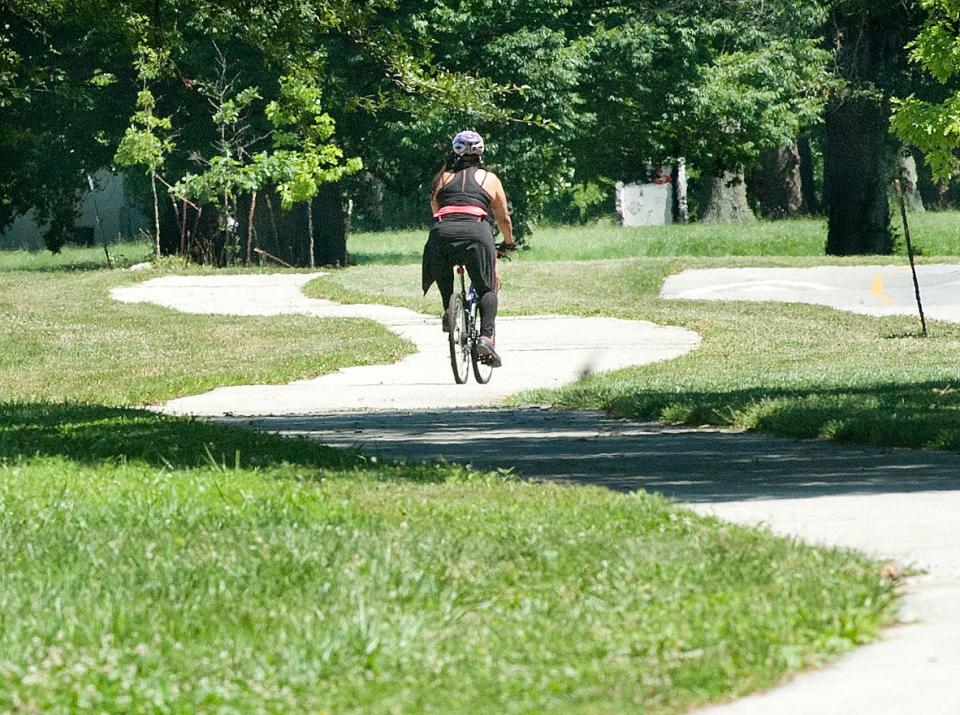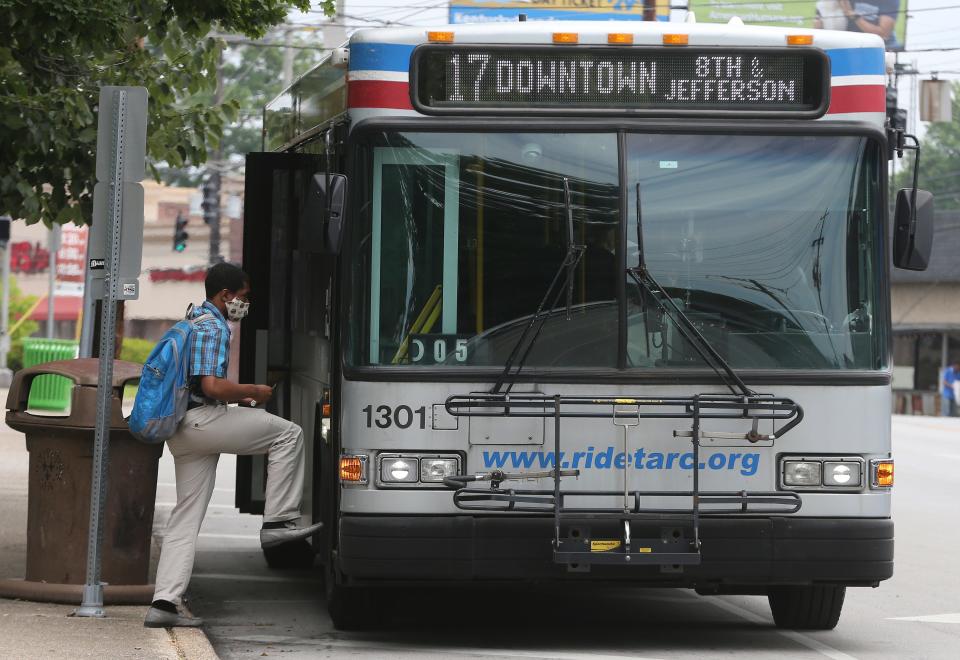Why Louisville Metro should have a Department of Transportation
How do you think decisions about our roadways, sidewalks, and bike lanes are made here in Louisville? You might guess that it's through our Department of Transportation, but surprisingly Louisville Metro does not have one.
Many cities do have DOTs, like Cincinnati, Nashville, Chicago, Indianapolis, Charlotte, Austin and dozens more. DOTs take responsibility for ensuring people can move around safely, manage budgeting and spending, and make the hard decisions about what to prioritize for residents, businesses and visitors. This is exactly what Louisvillians need from our Metro Government.
How does transportation work ever get done? It is a feat that is accomplished by cumbersome coordination between multiple city departments, divisions and quasi-governmental agencies, each with their own priorities, metrics for success, cultures, and authorities.
More:Metro Disability Coalition says TARC is failing to meet needs of paratransit passengers

Public Works executes on ideas and projects around roads and sidewalks, and has the Traffic Engineering division which is responsible for signals and traffic flow. Louisville Forward is partially concerned with economic development and gentrification issues and within its Develop Louisville department lives Advanced Planning and Sustainability which creates designs and plans to improve the public right of way. Vision Zero tries to keep our streets safe for everyone. LMPD has a traffic enforcement division. Air Pollution Control works to control pollution and greenhouse gasses, of which transportation is the largest source. PARC deals with vehicle parking violations, locations, and meters. And TARC, of course, manages our public transit system.
For a city government, this varied mix of agencies is not an efficient, cost effective or equitable way to manage our streets with taxpayer dollars. Louisville needs a unified Louisville Metro Department of Transportation (LMDOT) with a Director of Transportation, a single person responsible for prioritizing these competing interests, making hard decisions for the public well-being, addressing issues, and resolving problems.
LMDOT would free up police resources and reduce traffic stops by taking over some enforcement, and by working to implement street designs that require less enforcement in the first place. LMDOT would be a single point of contact to coordinate work with LG&E, Louisville Water, Metro Sewer District, Kentucky Regional Planning and Development Agency and Kentucky Transportation Cabinet to optimize road planning, paving schedules, construction work, and project coordination.
Recently, an error in coordination between Metro and MSD delayed the planned NuLu streetscape project for more than a year. With a LMDOT in place, such an error would likely not have happened. By contrast, the Bardstown Road redesign has moved along swiftly due to interdepartmental and public coordination — largely through the extraordinary efforts of Councilwoman Cassie Armstrong with the help of the non-profit Friends of Bardstown Road. A LMDOT would ensure that this kind of coordination is the rule, not the exception.
Departments of Transportation set a local vision for transportation because they have bureaucratic clarity and are empowered to do so. They are also responsible for implementing this vision with efficiently managing larger capital projects. DOTs can more easily attract the right federal and state funding sources through competitive grants and matching funds than our current decentralized system can.

For Subscribers:Waiting for hours: Louisville says its paratransit service is fixed. Riders don't buy it
In recent years Nashville, Kansas City, Atlanta, Denver, Milwaukee and Oakland have all implemented their own Departments of Transportation. Nashville’s DOT was recommended as part of their 2020 Metro Nashville Transportation Plan and officially launched on July 1, 2021. Their first full year included notable accomplishments such as 49 neighborhood traffic projects, efficiency improvements that delivered sidewalks 26% cheaper and 58% faster than in previous years, and receiving approximately $36.5 million in grants.
Our next mayor, Craig Greenberg or Bill Dieruf, has the authority to rearrange relevant city departments to create a LMDOT and Metro Council can work with the boards of PARC and TARC to incorporate some of their services and assets. It’s a proven concept that has been successful in many of our peer cities, with a clear roadmap for execution and known benefits.
Kentucky has KYTC, the federal government has the USDOT, and it’s time for Louisville to catch up with our peer cities. Our next mayor and Metro Council must create LMDOT, Louisville‘s first Department of Transportation.
Michael Schnuerle is a Louisville native and longtime resident who works for the international nonprofit the Open Mobility Foundation. He is currently a volunteer with Streets for People, a nonprofit transforming Louisville's streets and neighborhoods into vibrant, active, inviting places. Previously he was the city’s first Chief Data Officer for four years, working with 26 city departments on their data projects and the community by publishing open data. Michael organized the city’s first Transportation Camp with leaders from Metro, TARC, PARC, Metro Council and the business community in 2011.
This article originally appeared on Louisville Courier Journal: Louisville should have Department of Transportation like Chicago, Indy

